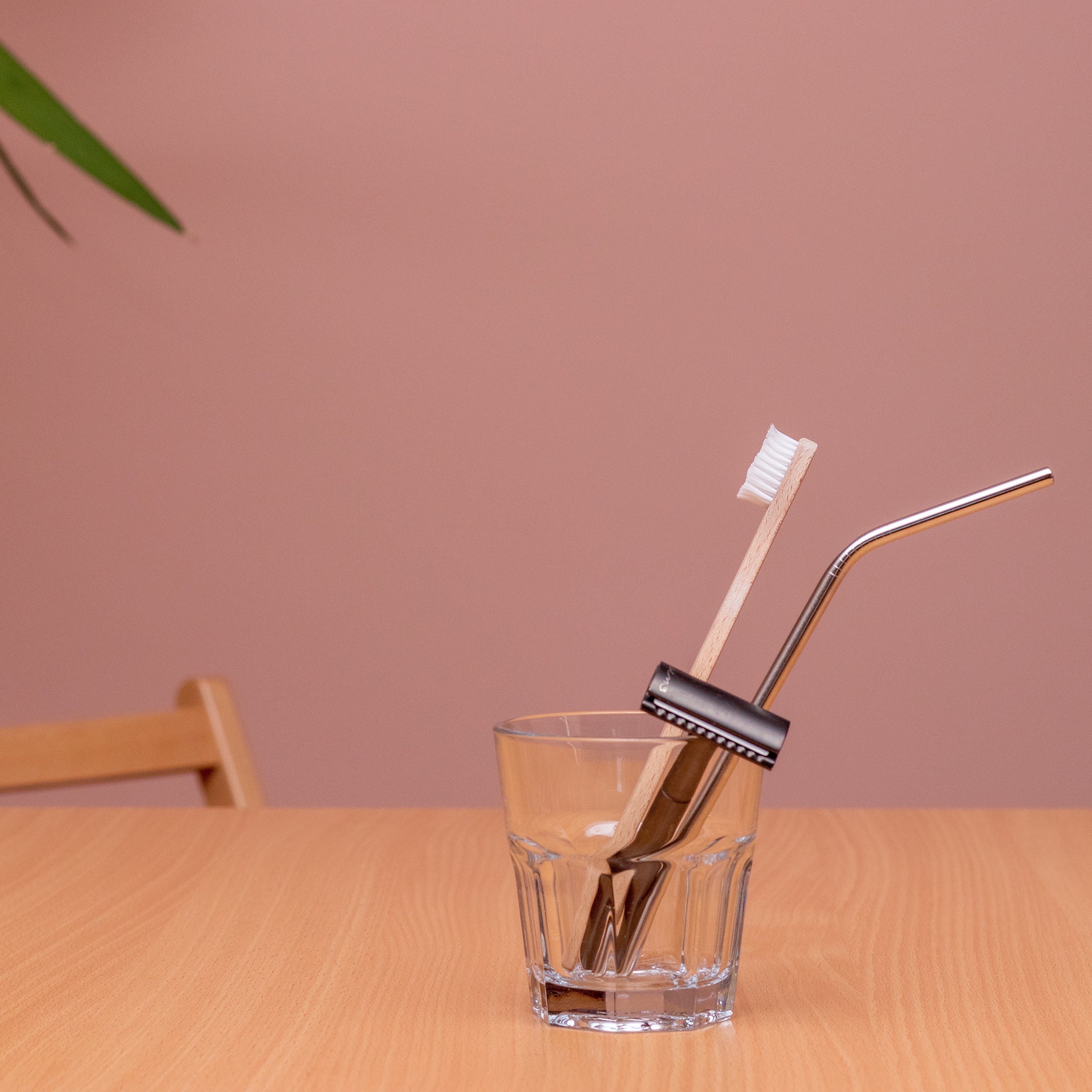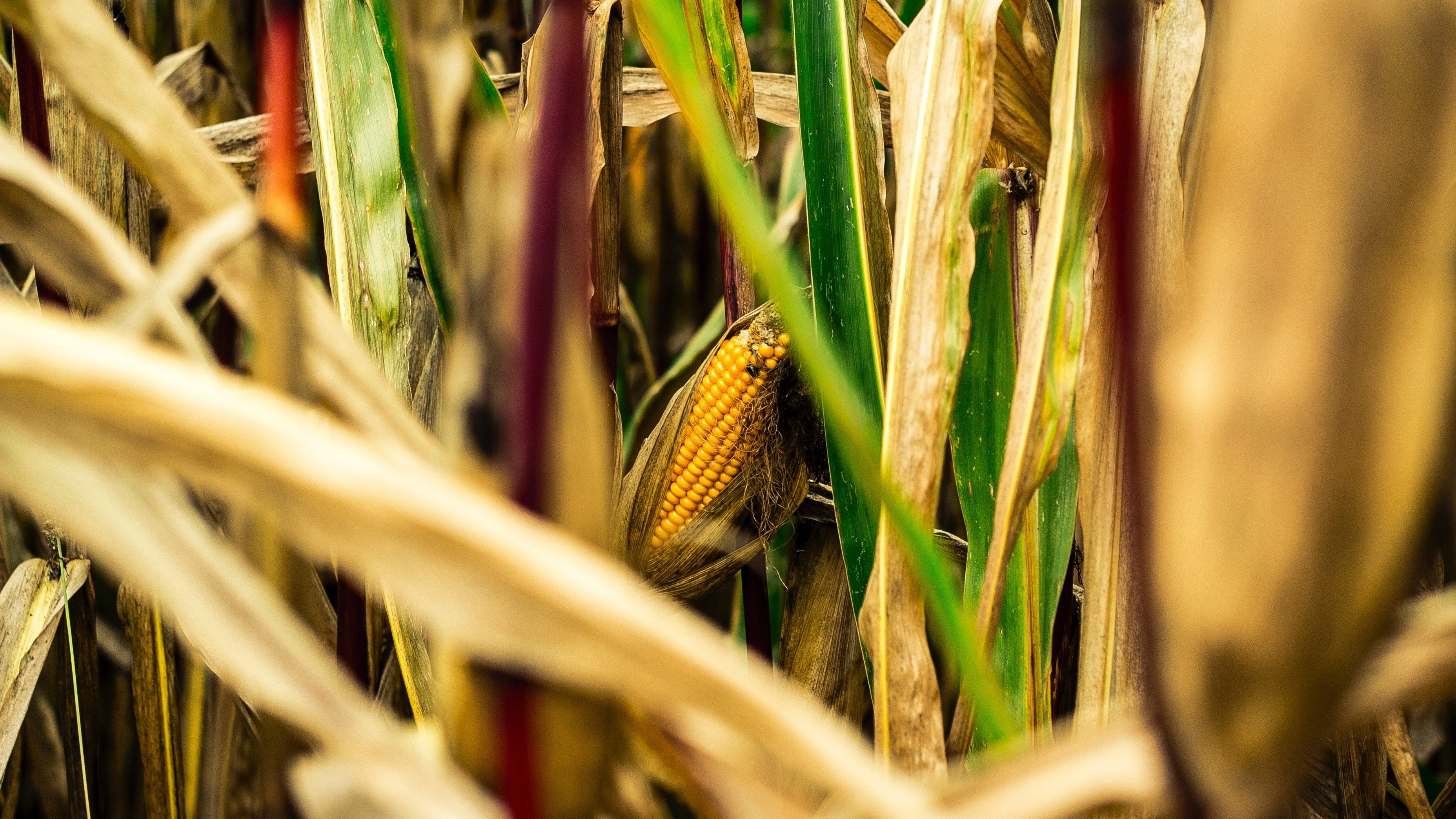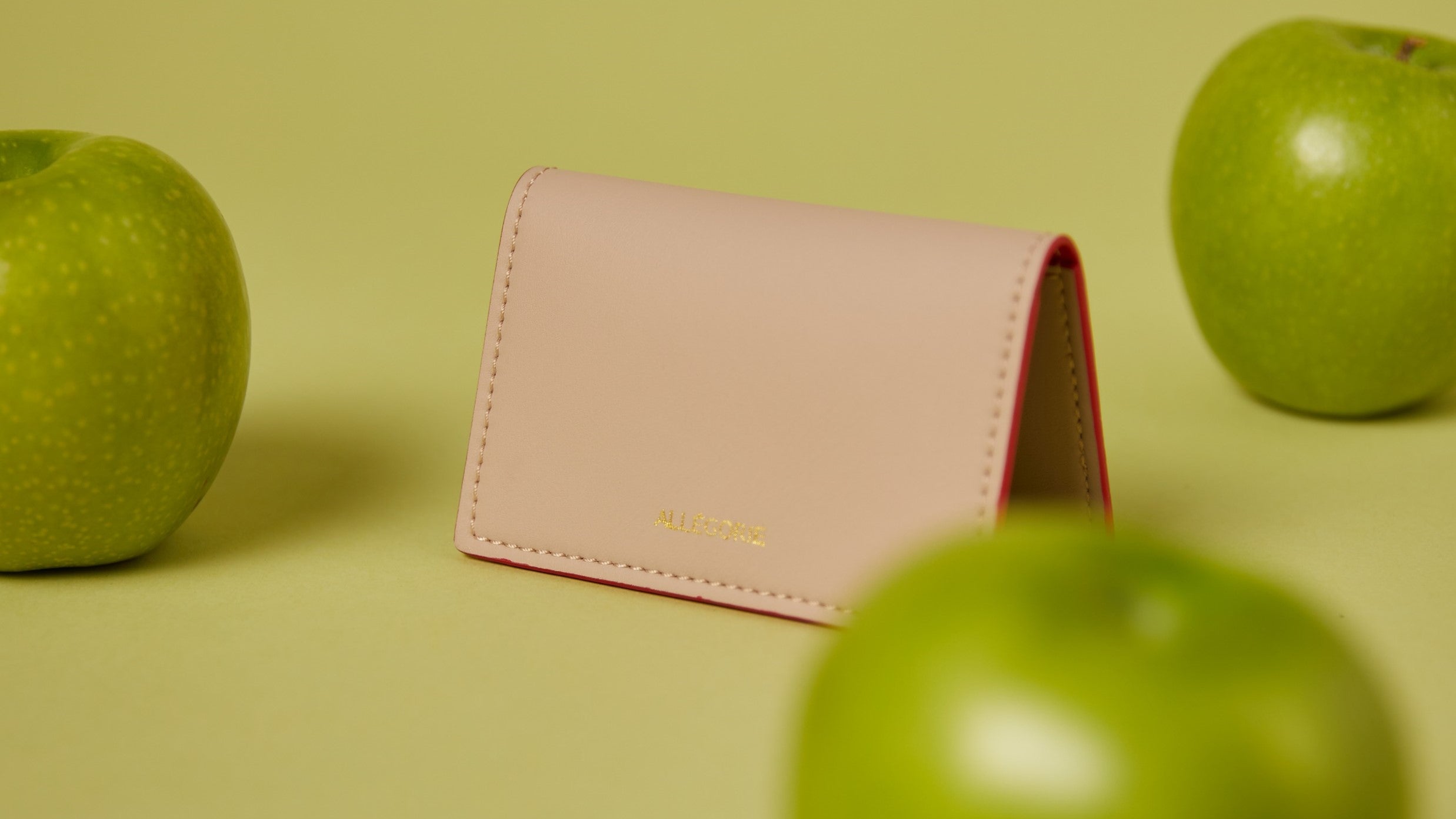
Zero-Waste Essentials for Beginners
BY MARIE WILSON
When I first learned about zero-waste I remember feeling immensely motivated and also incredibly overwhelmed. Just the term “zero-waste” felt daunting. As a movement zero-waste aims to create as little waste as possible, with everything tossed away being able to go in the compost or recycling bin. But if you take one look at your trash can it’s easy to struggle to comprehend where you should even begin. I came up with a false narrative that I needed to go zero-waste overnight. But I quickly learned that zero -waste, or rather just minimizing your waste, is a journey in which the process is as equally important as the destination.
One important aspect of “zero waste” is to reduce waste produced. The zero-waste movement is rooted in protecting the planet. In the United States we have a well-established “solution” to our trash. We simply put it out on the curb or down a garbage chute and that’s the last we see of it. It’s such a well-run system that I found it easy to not think twice about the amount of trash I was producing. But whether we see where our trash ends up or not, it still exists and it still creates greenhouse emissions. Every minute an entire truckload of garbage is emptied into our oceans, which is why it is estimated that by 2050 there will be more plastic than fish in the oceans.
Amount of trash accumulated in one month, at 2-year mark of my zero-waste journey.

Another big part of zero-waste is about reducing consumption, especially the ones that are toxic to the ecosystem, like plastics. This simple action can help reduce the amount of oil fracking, resulting in less greenhouse emissions, and keep plastics out of landfills and our oceans. Recent studies have shown that plastics have been found in hundreds of species in wildlife, including up to 86% of all sea turtle species. It’s easy to feel like we are just one person, and that our actions don’t matter. But moving towards a zero-waste lifestyle has the ability to keep plastics out of our oceans and save the wildlife it has been harming. In the United States, the average American produces 4.4 pounds of trash every single day. Over the course of the year that totals to 1,606 pounds of trash, with only 34.5% of that waste being able to be recycled. So, even if you were to cut your waste in half, these actions would still have a huge impact on the planet.
But even after understanding the term “zero-waste”, I was still intimidated as the word “zero” sounded so intense. I decided to look at this as an opportunity and started with something that felt like an easy first step. As time went on, I realized that most of the waste I produced came from when I was out and about, away from my zero-waste home. Here are some sustainability essentials that helped me start my journey of reducing my waste, both at home and while I was out.
- Water bottle: The most important aspect is to choose one that you love, since the more you enjoy your bottle, the more likely you are to remember it
- Thermos: Having a thermos, or even just a simple mug from home, can help you cut down on those pesky plastic lined coffee cups
- Reusable bag: Not only can a reusable bag help carry your groceries, but it also acts as a tote for all of your other zero-waste essentials
- Produce bags: Produce bags or mesh bags can help contain your fruit or bulk items without the need for a traditional plastic one
- Jars: A jar, or small container, can help store items from the bulk section, or your leftovers from a restaurant
- Utensils and napkin: Whether you have a fancy set of bamboo ones, or a fork from home, a set of utensils along with a reusable napkin will let you enjoy your meals waste free

There are so many incredible products out there to help you along your zero-waste journey. But it is important to purchase and use items that you thoroughly enjoy. After all, the more you like them, the more likely you are to continually use them. When I first started my journey, I would feel quite guilty if I forgot any of these items, as if I was failing the entire movement. But we must remind ourselves that while our actions do matter, it’s equally important to feel good during the process.
The perfect time to start a new journey isn’t tomorrow, but rather right now. If I had waited until I felt absolutely ready to start my zero-waste journey, I would have never started. The beginning of the new year offers a time for reflection and a time for goals. Let this be the year you start your journey, the year you stop waiting to feel ready and starting making changes. You are never alone on this journey, and the zero-waste community is here to help you every step of the way.
Learn more about how Allégorie helps solve food waste problems here.
*******
Sources:
EPA, Municipal Solid Waste. (n.d.).
World Economic Forum, 27 Oct. 2016, “Every Minute, One Garbage Truck of Plastic Is Dumped into Our Oceans. This Has to Stop.” by Pennington, James.
World Economic Forum, January 2016, The New Plastics Economy Rethinking the future of plastics.
Environment America Organization, Wildlife Over Waste. (n.d.)
*******
About the Writer
Marie Wilson is a Sustainability Blogger, Freelance Writer, and Climate Activist. Her writing focuses on the intersectionality of sustainability and the outdoor/travel industries. She was born and raised in Washington State near the city of Seattle. Her goal is to ensure that sustainability is accessible for all individuals. When she is writing she is often found trail running, hiking, biking or skiing. She currently resides in Bellingham, WA.
Blog | IG: @mindfulpeaks

